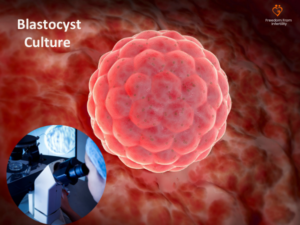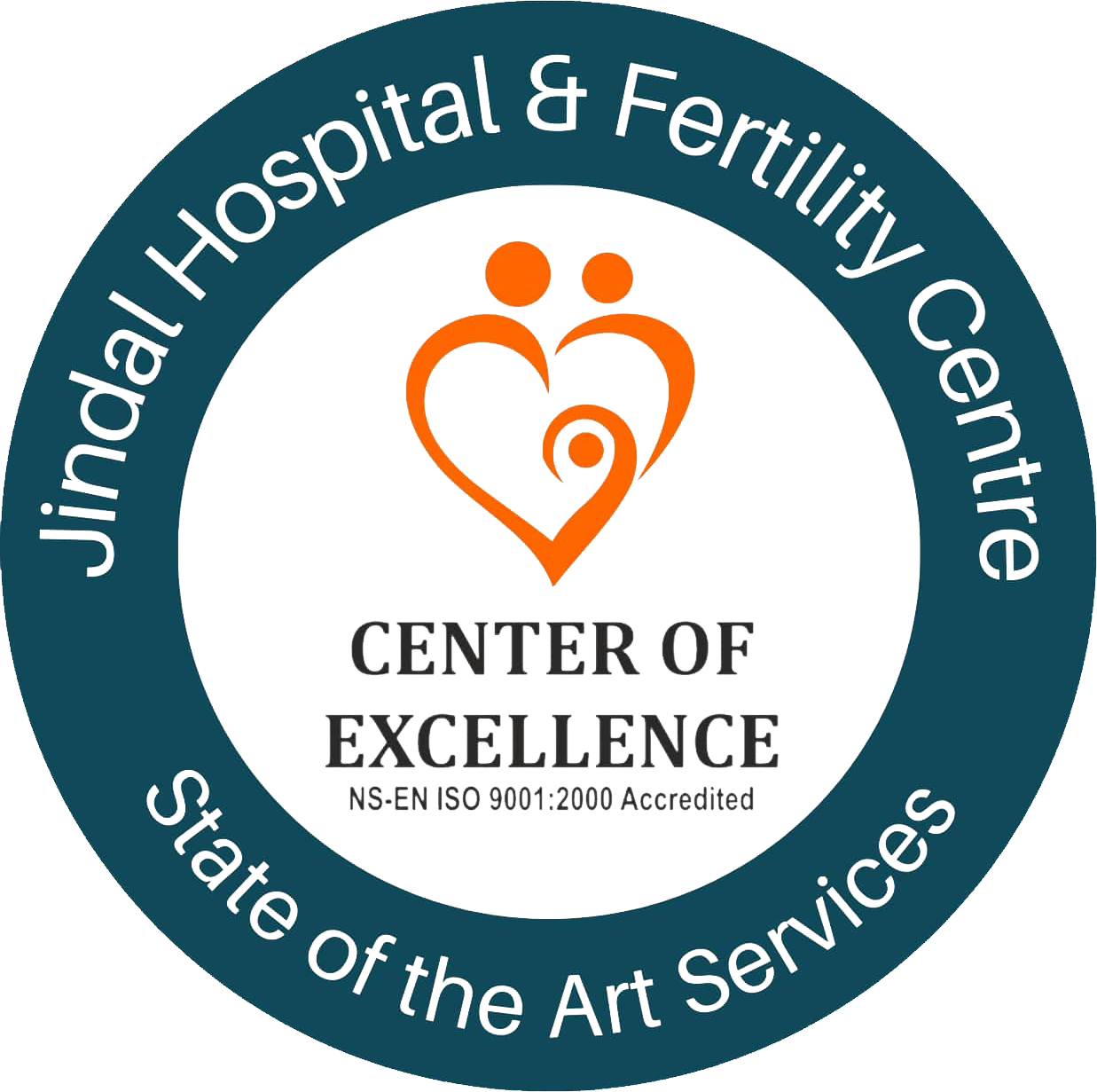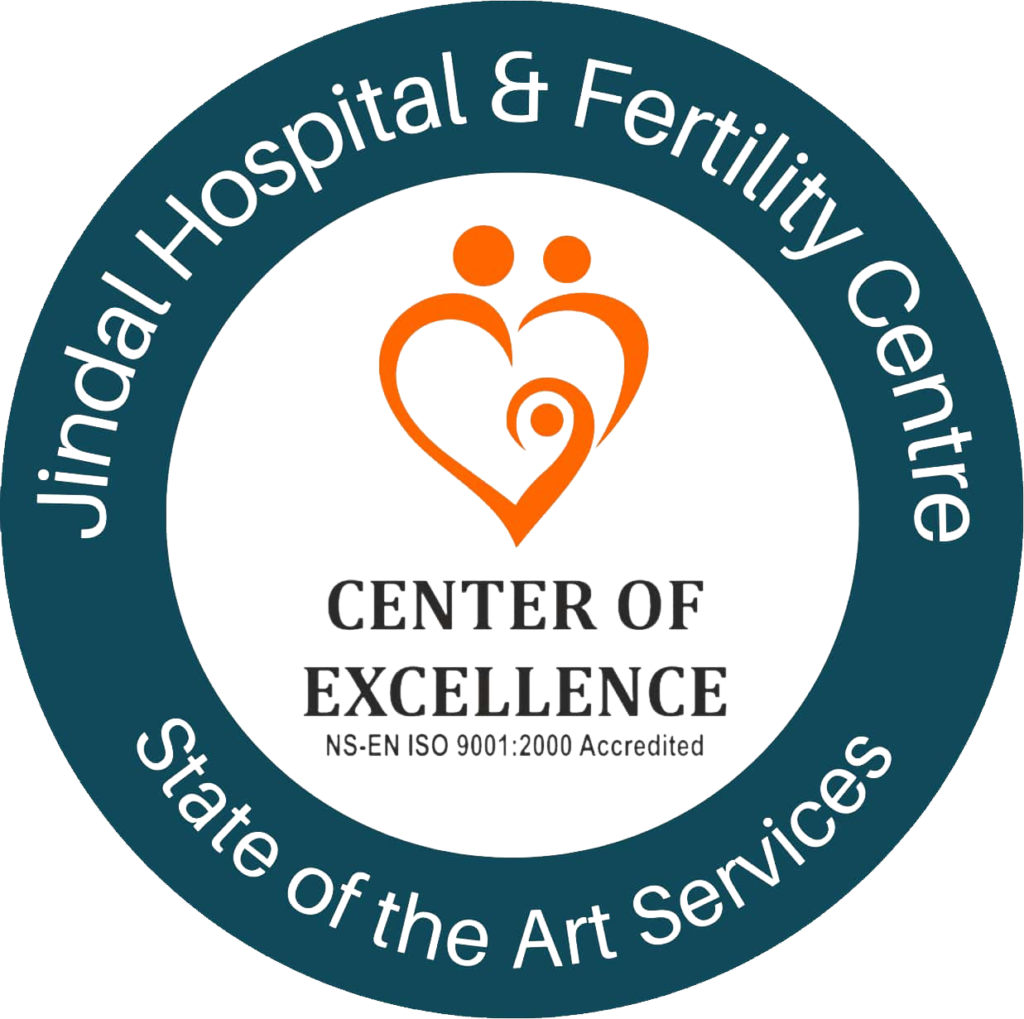Overview
Why choose us
Do's & Don'ts
Overview
 Blastocyst Culture and Transfer: Understanding the Procedure
What is Blastocyst Culture?
Blastocyst Culture and Transfer: Understanding the Procedure
What is Blastocyst Culture?
Blastocyst culture is an advanced laboratory technique used during assisted reproductive technology (ART) procedures, such as in vitro fertilization (IVF) and Intracytoplasmic Sperm Injection (ICSI). It involves growing the embryo for an extended period, typically five to six days, until it reaches a specific stage of development known as the blastocyst stage.
Key Stages of Blastocyst Development:
- Day 1-3: The embryo develops into a multicellular structure.
- Day 4-5: The blastocyst begins to form, consisting of two distinct cell types—the inner cell mass and the outer layer.
- Day 5-6: The blastocyst hatches from the protective Zona Pellucida, ready for implantation into the uterine wall.
Blastocyst culture may be recommended in several scenarios:
- Prior IVF/ICSI Failures: Couples with previous unsuccessful IVF or ICSI cycles despite good-quality eggs may benefit from blastocyst culture. It allows for a more thorough examination of embryo development between days three and six.
- Elective Single Embryo Transfer (eSET): Day 5 blastocyst transfer is advantageous for couples opting for eSET, increasing the chances of successful conception compared to Day 3 embryo implantation.
- Preimplantation Genetic Diagnosis (PGD): PGD involves embryo biopsy to analyze genetic conditions. Blastocyst culture facilitates the screening of embryos, allowing for the transfer of healthy embryos with reduced genetic risks.
- Multiple Healthy Embryos: Couples with multiple healthy embryos on day three of development may opt for blastocyst culture. This process enables the embryologist to select the best-quality embryos for transfer, reducing the risk of multiple pregnancies.
- Enhanced Selection: By allowing embryos to develop to the blastocyst stage, embryologists can better assess their quality and potential for implantation.
- Higher Implantation Rate: Blastocysts have a higher chance of implantation, leading to increased success rates for achieving pregnancy.
- Reduced Risk of Multiple Pregnancies: The transfer of a single high-quality blastocyst lowers the risk of multiple pregnancies while maintaining the likelihood of a healthy singleton pregnancy.
- Reduced Number of Embryos: Some embryos may not reach the blastocyst stage, resulting in fewer embryos available for transfer or freezing.
- Embryonic Block: In rare cases, embryos may cease maturation after day 3 of culture, leading to the end of therapy without the possibility of embryo transfer.
- Egg Collection (Oocyte Retrieval): Eggs are retrieved from the ovaries through a minimally invasive procedure under sedation.
- Fertilization: Eggs are fertilized with sperm in the laboratory, either through conventional IVF or ICSI.
- Blastocyst Culture: Embryos are cultured in specialized incubators until they reach the blastocyst stage.
- Embryo Selection: The healthiest blastocysts are chosen for transfer, while others may be cryopreserved for future use.
- Transfer Procedure: A thin catheter is used to carefully transfer the selected blastocyst(s) into the uterus, similar to a standard IVF procedure.
- Pregnancy Test and Follow-up: A pregnancy test is conducted approximately two weeks after the transfer to determine if implantation was successful. Ultrasound scans are performed to monitor pregnancy progress.
- Best Blastocyst Culture Center in Meerut & Delhi: Jindal Hospital & Fertility Centre, under the expert guidance of Dr. Sunil Jindal and Dr. Anshu Jindal, is renowned for its state-of-the-art facilities and successful outcomes in blastocyst culture and transfer.
- Leading Andrology Center in India: Our center is equipped with advanced technology and a team of experienced andrologists, ensuring the highest standards of care for male infertility issues.
- Personalized Care: At Jindal Hospital, we provide personalized treatment plans tailored to each patient’s unique needs, ensuring the best possible outcomes.
Blastocyst culture and transfer at Jindal Hospital & Fertility Centre offer hope and success for couples struggling with infertility. With a focus on advanced techniques, expert guidance from Dr. Sunil Jindal and Dr. Anshu Jindal, and a reputation as the best blastocyst culture center in Meerut, Delhi, and India, we strive to make your journey to parenthood a successful and fulfilling one. For detailed information and personalized guidance on Blastocyst Culture & Embryo Transfer, consult with our fertility experts at Jindal Hospital & Fertility Centre.
Why choose us
Indications for Blastocyst Culture in Assisted Reproductive Technology (ART) at Jindal Hospital & Fertility Centre
Introduction
Blastocyst culture stands as a vital technique in the realm of Assisted Reproductive Technology (ART), offering myriad advantages for couples navigating the path of fertility treatments. At Jindal Hospital & Fertility Centre, led by esteemed doctors Dr. Sunil Jindal and Dr. Anshu Jindal, this innovative approach to embryo development is employed with precision and care. In this article, we delve into the indications for blastocyst culture and shed light on why it is a beneficial strategy for certain cases of infertility.Indications for Blastocyst Culture at Jindal Hospital & Fertility Centre
1. Previous IVF Failures
- Couples who have encountered failed IVF cycles may find hope in blastocyst culture at Jindal Hospital & Fertility Centre. This advanced technique allows for meticulous selection of embryos, identifying those with the highest potential for successful implantation.
2. Advanced Maternal Age
- Women of advanced maternal age, under the care of Sunil Jindal and Dr. Anshu Jindal at Jindal Hospital & Fertility Centre, benefit from blastocyst culture. With age, egg quality may decline, making it crucial to select the most viable embryos for transfer.
3. Implantation Issues
- Couples facing repeated implantation failures can turn to blastocyst culture at Jindal Hospital & Fertility Centre for enhanced success rates. This technique allows for the identification of embryos with optimal implantation potential.
4. Limited Embryo Availability
- In cases of limited embryo availability, the expertise at Jindal Hospital & Fertility Centre ensures that each embryo is given the best chance. Blastocyst culture allows for the selection of high-quality embryos, maximizing the chances of pregnancy.
5. Pre-implantation Genetic Testing
- Couples undergoing pre-implantation genetic testing (PGT) can benefit greatly from blastocyst culture. Under the care of Sunil Jindal and Dr. Anshu Jindal at Jindal Hospital & Fertility Centre, this technique allows for safe biopsy of embryos at the blastocyst stage.
6. Polycystic Ovarian Syndrome (PCOS)
- Women with Polycystic Ovarian Syndrome (PCOS), treated at Jindal Hospital & Fertility Centre, often produce a higher number of eggs. Blastocyst culture ensures optimal embryo selection, increasing the chances of successful pregnancy.
7. Unexplained Infertility
- For cases of unexplained infertility, the expertise of Sunil Jindal and Dr. Anshu Jindal at Jindal Hospital & Fertility Centre shines through. Blastocyst culture offers insights into embryo quality, paving the way for targeted treatment.
8. Frozen Embryo Transfer (FET)
- Couples opting for Frozen Embryo Transfer (FET) at Jindal Hospital & Fertility Centre benefit from blastocyst culture. This technique ensures that embryos are at the ideal stage of development for successful implantation.
9. Male Factor Infertility
- In cases of male factor infertility, blastocyst culture at Jindal Hospital & Fertility Centre aids in selecting embryos with the highest chances of successful fertilization and implantation.
10. Optimizing Single Embryo Transfer (SET)
- With a focus on Single Embryo Transfer (SET) to reduce the risk of multiple pregnancies, blastocyst culture at Jindal Hospital & Fertility Centre ensures that the chosen embryo is of the highest quality for a successful singleton pregnancy.
Conclusion
Blastocyst culture at Jindal Hospital & Fertility Centre, under the expert guidance of Dr. Sunil Jindal and Dr. Anshu Jindal, offers a ray of hope for couples facing infertility challenges. From selecting the most viable embryos to optimizing success rates, this advanced technique is tailored to each patient’s unique needs. If you are considering blastocyst culture or wish to explore your options at Jindal Hospital & Fertility Centre, we invite you to reach out to us. Our compassionate team is dedicated to providing personalized care and supporting you on your journey to parenthood.Do's & Don'ts
The Do’s and Don’ts of Blastocyst Culture in Assisted Reproductive Technology (ART)
Introduction
Blastocyst culture is a critical component of Assisted Reproductive Technology (ART), offering enhanced embryo development and selection for couples undergoing fertility treatments. To ensure the success of this advanced technique, it is essential to understand the do’s and don’ts involved. In this article, we outline the important guidelines for patients undergoing blastocyst culture at Jindal Hospital & Fertility Centre, under the expert care of Dr. Sunil Jindal and Dr. Anshu Jindal.The Do’s of Blastocyst Culture
1. Follow Pre-Culture Instructions
- Do: Adhere to all pre-culture instructions provided by Sunil Jindal and Dr. Anshu Jindal at Jindal Hospital & Fertility Centre. This may include guidelines on medications, diet, and lifestyle modifications.
2. Maintain a Healthy Lifestyle
- Do: Opt for a healthy diet rich in nutrients, vitamins, and minerals. Regular exercise and adequate hydration can also support optimal embryo development during blastocyst culture.
3. Attend All Appointments
- Do: Ensure timely attendance at all appointments scheduled for blastocyst culture. Regular monitoring by our expert team allows for precise assessment of embryo development.
4. Stay Informed
- Do: Educate yourself about the blastocyst culture process. Ask questions and seek clarification from Sunil Jindal and Dr. Anshu Jindal to understand what to expect during the procedure.
5. Maintain Emotional Well-Being
- Do: Practice stress-relieving techniques such as yoga, meditation, or counseling if needed. Emotional well-being plays a crucial role in the success of fertility treatments.
6. Follow Post-Culture Care
- Do: Adhere to all post-culture care instructions provided by our team at Jindal Hospital & Fertility Centre. This includes guidelines on rest, activity levels, and medications.
7. Stay Positive
- Do: Maintain a positive outlook throughout the blastocyst culture process. Visualize a successful outcome and stay hopeful for the best results.
The Don’ts of Blastocyst Culture
1. Avoid Alcohol and Tobacco
- Don’t: Refrain from consuming alcohol and tobacco products during blastocyst culture. These substances can have adverse effects on embryo development.
2. Limit Caffeine Intake
- Don’t: Excessive caffeine consumption should be avoided during blastocyst culture. Opt for decaffeinated options or limit intake to a moderate level.
3. Avoid Strenuous Activities
- Don’t: Engage in strenuous exercises or activities that could impact embryo implantation. Gentle, low-impact exercises such as walking or yoga are preferable.
4. Don’t Skip Medications
- Don’t: Follow the prescribed medication regimen diligently. Skipping doses or altering the dosage without consulting Sunil Jindal and Dr. Anshu Jindal can affect the success of blastocyst culture.
5. Don’t Ignore Symptoms
- Don’t: If you experience any unusual symptoms such as severe pain, fever, or heavy bleeding during blastocyst culture, notify our team immediately.
6. Avoid Hot Baths or Saunas
- Don’t: Heat exposure from hot baths, saunas, or hot tubs should be avoided during blastocyst culture. Elevated body temperature can negatively impact embryo development.
7. Don’t Stress
- Don’t: Try to minimize stress and anxiety as much as possible during blastocyst culture. Consider relaxation techniques or counseling if needed.


